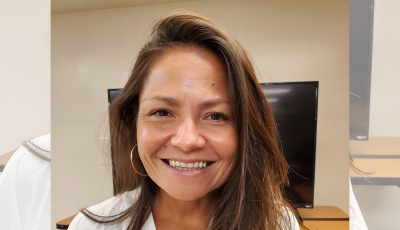Korean Kapi
A newborn understands that when hungry ze utters “mum-mum-mum” and mother nurses the child. “Mama” is a global word phenomenon; I am not sure where “da-da” is grounded but it seems universal as well (and “dada” in Zhongwen is “big brother,” another term for the father who is the older male; a younger boy is “didi”). Perhaps “mama” is sensual abstracted; “dada” is abstracted relational.
Semantics is not our focus. Ludwig Wittgenstein was helpful in teaching that “meaning” of a word is derived from use, not in the dictionary definition of the word. A Korean colleague asked if I would join him in Korean Kapi, and when I repeated “coffee” he smiled. “No, kapi (pronounced “copy”),” he reiterated. Why not? Pinas says kape, why not kapi in Hanguk?
My neighbor tells of his wife exclaiming on the parking lot after seeing me with a shirt on: “Oh, my, it is Jaime; I did not recognize him with his shirt on!” My neighbor smirked. He saw me often after Soudelor on our walkway without a shirt on when our electricity came rationed, brushing off crusted salt on seashells, sweating out the tropical heat. A New Yorker, he says that his wife “plays with the men” and “he with the ladies” when they are in their retirement home in Florida. Once he bumped into one of his tennis partners at the local store and exclaimed: “My dear, I’ve never seen you with a dress on!” Her grandson stared in disbelief. The tennis attire is short and shirt. The meaning of a word is in the mind of the user.
GOP presidentiable Ben Carson on stage delights his audience by asking them to raise their hands if they remember their b-day, then proceeds to describe what happened. A portion: “The sound waves had to leave my lips, travel through the air into your external auditory meatus, travel down to your tympanic membrane, and set up a vibratory force…coming down the tract of Vicq d’Azur, retrieving the memory from the medial hippocampal structures and the mammillary bodies, …descending to the cervicomedullary decussation into the spinal cord gray matter, synapsing, and going out to the neuromuscular junction, stimulating the nerve and the muscle so you could raise your hand.” Meaningful? It depends. But Carson impressively raps more than 200 words in a minute. The retired neurosurgeon knows his scientific jargon.
Our broad understanding of how the brain works traces sense stimuli from the medulla oblongata to the emotive cerebellum before it gets to the cognitive cerebrum where the issue of meaning and significance gets articulated in words and numbers. What separates our humanity from the rest of the animal kingdom is the ability to do the three steps (use the brain fully) before acting.
A Peace Corps volunteer in an orientation relates how he took a Filipino shower (with tabo) in his second floor dwelling on his first year when a voice from under the house rang out loudly saying, Tubig (water)! His water had dripped down to the first floor. Being a sport, and to practice his language, the volunteer responded: Dili, midyom lang! The French has expressive garde loo, “watch out for water,” and loo, indeed, small, medium, or large.
Across the English channel, the royals employed a royal hind wiper called the “groom of the stool,” which no longer comes as a surprise after watching Chinese grandmas wipe their child’s heine until they are 6. The Papas get that assignment in Shanghai and environs.
The Chinese are taught Hanzi with each character given a specific meaning; students learn their English the classical Zhongwen way, ergo each English word has a definite meaning. Learning English the Chinese way visually focuses on the dictionary rather than on audio familiarity.
English is a phonetic language with less than 50 sounds on its phonemes. We can learn language naturally and directly without coursing it through a native tongue. The brain learns by describing what it sees, hears, smells, tastes, and touches, expresses feelings, articulates ideas and thoughts before formulating actions and deeds. This pattern is universal regardless of ethnicity; it learns and assigns a word for every experience.
Of course, teaching language is not just a pedagogical refinement. I was asked to teach foreign Soudelor disaster volunteers on Saipan to speak their English, and started with the “hear and repeat” method on body parts as a start; I missed the organizer’s role in the learning process. Though not particularly refined in his English, he fancied himself as the groups’ translator, which defeated our pedagogy of “hear and repeat.” Listeners remembered his translation word rather than the English counterpart.
After I asked that he defer from translating and that the learners did not need to defer to him each time I asked a question, I hit a nerve and he immediately declared that we stop as he thought the group would be better off seeking a Caucasian teacher who will pronounce words better.
Korean kapi, anyone?



























